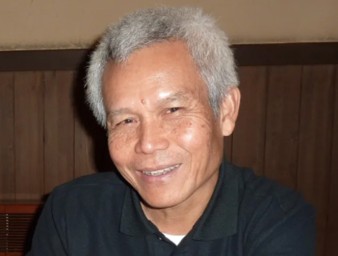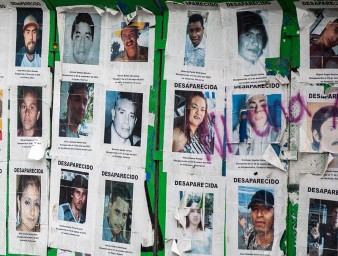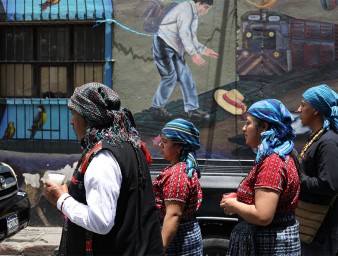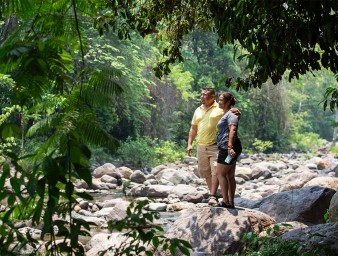Defending the defenders: Human Rights Day 2010
10 December 2010

In a video message recorded especially for Human Rights Day, Aung San Suu Kyi spoke of the “more subtle” forms of discrimination, those directed against the very defenders of human rights. She identified those working for democracy in Myanmar, including herself, as falling into this category because she said, “without human rights there can be no such thing as genuine democratic institutions.”
“For this reason we have been discriminated against,” she said. “We who defend human rights, in turn, we need to be defended. This gives us a tremendous sense of solidarity with people all over the world who believe that it is the duty of human beings everywhere to safeguard human rights.”
The Mayor of Geneva, Sandrine Salerno said human rights had become a major part of global governance. She was highly discouraged from time to time she said by the reluctance of States “to turn the law into action” but she said it is “our duty not to give up.”
A number of the human rights defenders in the room had travelled from many different countries to Geneva to take part in the Human Rights Day event and to recount their experiences.
Dora Alonzo is a member of the Parliament for Children and Adolescents, a Guatemalan national organization for Mayan, Xinca, Garifuna and Ladino children. She strongly defended the rights of children and adolescents to freely express their views and have their opinions taken seriously. She urged an approach that goes beyond adult views only and looks at problems with a child’s perspective.
Beatrice Achaleke from Austria is the President of the Black European Women’s Council. ”Black women in Europe says it all,” she told the audience. “We are a minority group”, she said, “who are constantly obliged to justify our presence. We do not have the same opportunities and rights as people who are white: “As long as there is no equality between black and white, there can be no equality,” she said. Her organization, Achaleke said is about creating an inclusive zone for everyone.
Another of the guests at the Geneva event, Otgonbaatar Tsedendemberel from Mongolia is one of the thousands of defenders whose life has been threatened because of his work as a defender. Just days ago, he said he had received warnings that he was in danger. Tsedendemberel is the Advocacy Programme Manager of the LGBT Centre, the first to defend the rights of lesbian, gay, bi sexual, and transgender people in Mongolia. The LGBT centre, he said, had been resisted by officials from the start: he was told when registering the organization’s name that its meaning conflicted with traditional customs and set the wrong example for young people.
Abala Abu Middan from Gaza has established Right to Live, an association which assists with the care and education of people suffering from Downs Syndrome and autism. She described the enormous difficulties she had faced when she had a baby with Downs Syndrome, the struggle to find support and care. Society is harsh and regards as inferior those that are not like others, Middan said. Many of these children are hidden, she said but now with the help of the association are free and are acknowledged. Middan said through the group’s advocacy efforts she believed attitudes had changed towards people with Downs Syndrome: they are now regarded with respect and esteem.
Nurbek Toktakunov is a lawyer from Kyrgyzstan who defends human rights defenders. He paid tribute to others who do the same work, mostly women, he said because they feel the inequalities particularly keenly. He talked of the people he defended after the ethnic conflict in the south of the country in mid 2010 and noted that many of them went to jail for life. Nonetheless, Toktakunov has not given up: “despite the sense of uselessness, the main thing is to try,” he said.
In her statement marking Human Rights day UN High Commissioner for Human Rights Navi Pillay encouraged everyone to consider joining the ranks of the thousands of human rights defenders already working to enact the principles of the Universal Declaration. “Commitment and courage” are prerequisites, she said. “At the very least, we should do our utmost to support those who do defend human rights.”
The gathering also head from Roberto Garreton, a member of the UN Working Group on Arbitary Detention, who said defenders must themselves not make distinctions. The common goal, he said is to fight for international, universal human rights.
Chaloka Beyani, the Special Rapporteur for internally displaced people spoke of the importance of defenders and the desperation of those who need help.
Anna Peláez Narváez, a member of the UN Committee on the Rights of Persons with Disabilities, spoke about the disabled and defence of their rights. She reminded the audience of the importance and power of the language used to describe people.
Suu Kyi concluded her message by urging unity of purpose and support for one another: “Without freedom and security our lives cannot be meaningful… Let us all stand together, not only to defend human rights, but to defend each other in our struggle for human rights.”
10 December 2010




